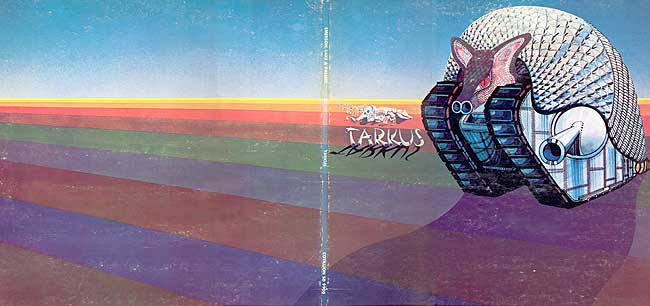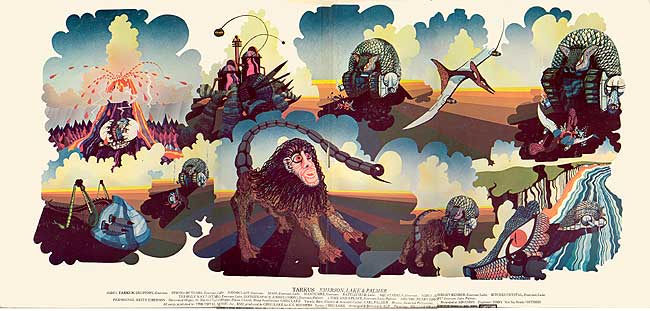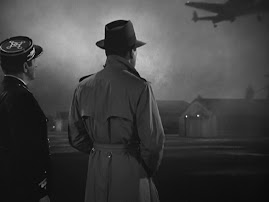Stand By Me
When the night has come
And the land is dark
And the moon is the only light we'll see
No I won't be afraid, no I won't be afraid
Just as long as you stand, stand by me
And darlin', darlin', stand by me, oh now now stand by me
Stand by me, stand by me
If the sky that we look upon
Should tumble and fall
And the mountains should crumble to the sea
I won't cry, I won't cry, no I won't shed a tear
Just as long as you stand, stand by me
And darlin', darlin', stand by me, oh stand by me
Stand by me, stand by me, stand by me-e, yeah
Whenever you're in trouble won't you stand by me, oh now now stand by me
Oh stand by me, stand by me, stand by me
Darlin', darlin', stand by me-e, stand by me
Oh stand by me, stand by me, stand by me
Thursday 26 June 2008
Otis Redding - STAND BY ME
OTIS REDDING - MY GIRL
MY GIRL
I've got sunshine
On a cloudy day.
When it's cold outside,
I've got the month of May.
Well, I guess you'll say
What can make me feel this way?
My girl. (My girl, my girl)
Talkin' 'bout my girl. (My girl)
I've got so much honey
The bees envy me.
I've got a sweeter songThan the birds in the trees.
Well, I guess you'll say
What can make me feel this way?
My girl. (My girl, my girl)
Talkin' 'bout my girl. (My girl)
Ooooh, Hoooo.
Hey, hey, hey.
Hey, hey, hey.
I don't need no money,
Fortune or fame.
I've got all the riches, baby,
One man can claim.
Well, I guess you'll say
What can make me feel this way?
My girl. (My girl, my girl)
Talkin' 'bout my girl. (My girl)
Talkin' bout my girl.
I've got sushine on cloudy day
With my girl.
I've even got the month of MayWith my girl.
Rock Me Baby-BB KIng/Eric Clapton/Buddy Guy/Jim Vaughn
Rock Me Baby
Rock me baby, rock me all night long
Rock me baby, honey, rock me all night long
I want you to rock me baby,
like my back ain't got no bone
Roll me baby, like you roll a wagon wheel
I want you to roll me baby,
like you roll a wagon wheel
Want you to roll me baby,
you don't know how it makes me feel
Rock me baby, honey, rock me slow
Yeah, rock me pretty baby, baby rock me slow
Want you to rock me baby, till I want no more
Under The Boardwalk
Under The Boardwalk
When the sun beats down and burns the tar up on the roof,
And your shoes get so hot you wish your tired feet were fireproof,
Under the boardwalk, down by the sea,
On a blanket with my baby, that's where I'll be.
From the park you hear the happy sound of the carousel,
You can almost taste the hot dogs and french fries they sell,
Under the boardwalk, down by the sea,
On a blanket with my baby, that's where I'll be.
Under the boardwalk, (Out of the sun)
Under the boardwalk, (We'll be having some fun)
Under the boardwalk, (People walking above)
Under the boardwalk, (We'll be falling in love)
Under the boardwalk, (Boardwalk!)
Oooh, la la la la la la.
Oooh, la la la la la la la la la.
Help me somebody, sing some la la's with me.
Under the night, under the stars by the raging sea.
Under the boardwalk, down by the sea,
On a blanket with my baby, that's where I'll be.
Under the boardwalk, (Out of the sun)
Under the boardwalk, (We'll be having some fun)
Under the boardwalk, (People walking above)
Under the boardwalk, (We'll be falling in love)
Under the boardwalk, (Boardwalk!)
SEX AND DEATH IN TRANSYLVANIA
Dracula turns 100 in 1997 - Bram Stoker's Dracula, as Francis Ford Coppola titled his fetid version of the off-filmed horror classic. The immortal count was not always as popular as he is on the eve of his centennial. Victorian critics halfheartedly praised Stoker, mostly admiring the author's "imaginative faculty, and many ingenious and gruesome details." Friends such as Arthur Conan Doyle congratulated him in measured phrases: "I think it is the very best story of diablerie which I have read for many years." The public was surprisingly indifferent. "Readers found nothing sexually unsettling about Dracula," writes Barbara Belford in Bram Stoker: A Biography of the Author of Dracula (Knopf, 396 pp). "No moralistic letters of outrage were published in the London Times, for who would admit to understanding its hidden messages?"
Belford postulates that Dracula is a kind of autobiography, "bristling with repression and apprehension of homosexuality, devouring women, and rejecting mothers." The famous scene in which the book's hero, Jonathan Harker, is seduced by three vampirettes - only to have the count interrupt the ersatz orgy with the cry, "This man belongs to me!" - dramatizes Victorian men's fear of sexually aggressive women as well as their abysmal urge for manly love. But Belford doesn't stop there.
"Stoker's realization that his mother was indeed a sexual being who belonged to his father finds an outlet in his fiction when he intermingles Oedipal conflicts with sibling rivalry, patricide and infanticide," she writes. She also suggests that Stoker's fascination with blood may flow from his mother's tales of a cholera epidemic (survivors fended off starvation by drinking blood from the family cow) or even a traumatic glimpse of afterbirth (he was one of seven children).
Thankfully, Belford dispenses with such musings when she begins her narrative proper and, all in all, Bram Stoker is a good read - no small accomplishment since her subject was unusually self-effacing for a gregarious Irishman. "Stoker dispersed memories as selfishly as an old crone ladling soup," writes Belford. She knows the era and its inimitable cast of characters, however, having written a biography of Violet Hunt, novelist and paramour to H.G. Wells and Ford Madox Ford.
Stoker was stingly with memories but saved all sorts of scraps and jottings related to his job as business manager of London's premier theater, the Lyceum, and devoted secretary to England's first knighted actor, Henry Irving. He was mesmerized by Irving from the first time he saw him on stage in 1872 in a now-forgotten comedy that nevertheless inspired Stoker to seek out a job as drama critic for the Dublin Evening Mail. Four years, later, Stoker reviewed Irving's performance as Hamlet, which in turn impressed the actor. They dined together and talked until dawn, the first of countless all-night conversations.
Stoker was born just outside Dublin in 1847, one year after the great potato famine that killed 1.5 million Irish and sent another 1.5 million abroad. The son of an ambitionless but conscientious bureaucrat, young Abraham was bedridden from an unrecorded malady until age 7. "All my early recollection is of being carried in people's arms and of being laid down somewhere or other on a bed or a sofa." he wrote, later excising the passage before publishing a memoir titled Personal Reminiscences of Henry Irving Belford notes that fears of death and abandonment haunt Dracula, an observation that needs no psychoanalytic support.
Despite these lost years, Stoker grew into a strapping youth, gaining renown as an athlete and a debater during his years at Trinity College. He was invited to join The Phil and The Hist, two prestigious societies. "Tall and ruggedly handsome, with gingercolored hair and an enthusiasm to belong, he was soon known around the green as a `clubbable man,'" writes Belford. He also was inclined toward hero worship and became an ardent fan of Walt Whitman, who was enjoying a vogue across the Atlantic in the early 1870s. Stoker corresponded with and later met the aging poet while touring the states with the theater company. "Whitman's influence on Dracula was profound," according to Belford, who notes similarities between poet and vampire. "Each has long white hair, a heavy moustache, great height and strength, and a leonine bearing."
The more important model for Dracula was Irving, a darkly charismatic egoist who excelled at playing villains, including Mephistopheles. From the time he signed on in 1878 to manage the fledgling Lyceum through the heady days of triumph when invitations to theater dinners were the most coveted in London, Stoker was Irving's shadow and servant. "When Stoker made his Faustian pact with Irving to be acting manager ... he knew Irving was his master," argues Belford. "That Stoker found this companionship endlessly rewarding in itself was obvious, but that he was not rewarded in kind was the disappointment of his life."
Certainly Stocker basked in Irving's glory and enjoyed socializing with the likes of William Gladstone, Richard Francis Burton and Ellen Terry, the Lyceum's leading lady. But Irving expropriated and exploited his manager's talents. Stoker not only developed the Lyceum into a first-rate theater, he attended to the actor's every need - writing his speeches, ordering his lunches, fending off favor-seekers. Once Irving insisted Stoker hire an old woman looking for work, suggesting she look after the theater cats. "We have three women taking care of the cats," pleaded Stoker. "Well, let her look after the three women that are looking after the cats," replied Irving.
Because Stoker himself was not nearly as eccentric as others drawn to seance society, Belford enlivens her story with cameo appearances by Helena Petrovna Blavatsky, founder of the Theosophical Society, and other amusing ghosts from the past. Fellow Dubliners George Bernard Shaw and Oscar Wilde loom large in the book - Wilde once having wooed the same woman Stoker married. Irving and Ellen Terry continue to steal Stoker's limelight even in his own biography.
Still, the author of Dracula rises transcendent in our imaginations. Like Lewis Carroll, whose place in history is assured by the phenomenal success of one unique work, Brain Stoker always will be of interest to the world. Unless, alas, we psychoanalyze the poor devil to death. Free to be titillated by the eroticism of Dracula we moderns have turned the vampire into the vamp. Exposing illicit pleasures to the light of day drives a stake through the heart of desire.
COPYRIGHT 1996 News World Communications, Inc.
SEXUALITY IN DRACULA
The battle towards modernization has been fought on several different battlegrounds. From movements such as the Industrial Revolution to the instituting of the Vatican II. However, one battle that still reigns today is the battle between modern and traditional views on gender and sexuality. In the novel Dracula by Bram Stoker the theatre of war changes to Victorian England and the battle between Count Dracula and Dr. Abraham Van Helsing. What this paper will analyze is the sexual and gender-related imagery in Dracula and the stance it took on how the two genders are to act.
The lines of gender are often unseen in the novel Dracula by Bram Stoker. This is shown through the reactions of the men to the situations in which they face. At times it can be assumed that their reactions and feelings towards a situation can be seen as rather weak and lacking machismo. The lines of Gender had become blurred by the differences between how a man or woman was supposed to act and react. When it came to the matter of Dracula this is not true. Dracula acts as the cheif reproducer and cause for vampirism in general, whereas characters such as Lucy Westenra who when she became a vampire was incapable of making more vampires. She was only capable of draining the blood of children and killing them. This gives off the image that reproduction is in the power of men alone and not in the power of women. This is the classical view of how men were supposed to be: strong, powerful, and well to do with women. Considering the role of Dracula is the role of the villian in the novel it can be assumed that the villainy is the traditional machismo view of men and not just the undead visage of such masculinity.
However, as much as Dracula is the masculine dominating character there is always the opposite. For instance, in the case of Johnathan Harker you are introduced to a character who is written as being so strongly affected by his contact with Dracula that he took on, “a grey look which deepened and deepened … till … the flesh stood darkly out against the whitening hair.[1]” To have the events that he had experienced with Dracula affect him so made it apparent that he was a sensitive and in traditional terms a weak man. Geddes and Thomson write that, “Man thinks more, woman feels more. He discovers more, but remembers less; she is more receptive, and less forgetful.[2]” This view of the male gender contradicts the actions of Johnathon Harker. Although his experiences with Dracula and the three women that reside with him are quite horrifying, a man was expected more or less to be manly and view the situation logically and not run away with greying hair.
Another example of Johnathon Harker’s femininity can be shown in the events which occured after the slaying of Lucy Westenra, “The moment we were alone in the carriage he gave way to a regular fit of hysterics. [...] He laughed till he cried and I had to draw down the blinds lest anyone should see us and misjudge; and he then he cried till he laughed again; and laughed and cried together, just as a woman does.[3]”The machismo that men of his time were expected to display was made irrelevant by the events that had come to pass before but men were not expected to be anything more but manly, and women were expected to be prone to hysterics and fits of emotion. When Dr. Seward uses the words, “…as a woman does” he dismisses the act in the carriage as being something of hysterics and therefore is something only women were seen as being capable of having.
Taking into consideration the remark made by Geddes and Thomson which viewed women as feeling more, receptive, and less forgetful. It would be good to note that the women in Bram Stoker’s Dracula take up the masculine role that the men have left behind. For instance in the character of Mina Harker we see a woman who is strong, calculating, and independent. She is a school teacher and is proficient at short-hand, she makes several copies of her journal, and successfully fights off Dracula’s charms on more than one occaision. She not only takes up the role of the receptive, less forgetful female; she also takes up the role of the thinking male. Without her help, the men of Dracula would have failed miserably at the task of destroying the vampire. Later in the novel her several copies of her journal, that she had produced using the manifold function on her typewriter, become essential in her survival when Dracula burned what was thought to be her only copy4. Although her masculine personality is clearly displayed she is also a woman who’s maternal instincts make her an extremely caring individual. This brings Dr. Van Helsing to comment on her being by saying she has the brain of a man but the heart of a woman5. This motherly and nurturing side of Mina makes her come to even feel remorse towards Dracula when he is being hunted6. Canny-Francis writes that, “men are still seen as dominating and controlling the agency by which women are recognised as intelligent; a woman is intelligent if or because men think she thinks like them.[7]” Therefore, Dr. Van Helsing’s comment that she has a man’s brain makes it just a masculine trait and does not define her as masculine.
The sexual concepts in Bram Stoker’s Dracula are found in the sexualities of the female characters. Mina Harker’s appetites are epecially interesting when she makes a reference to the New Woman’s sexual movement. She even boasts about her own and Lucy’s appetites when she writes, “I believe we should have shocked the ‘New Woman’ with our appetites.[8]” When Mina refers to this ‘New Woman’ she refers to a new stage of female sexual daring and prowess. Cranny-Francis notes that she is sexually childish and passive9, but this leaves the idea that she and Johnathon had engaged in sexual congress either before or after the wedding. However, when she is pursued by Dracula she becomes far more active and even more assertive. Cranny-Francis describes this as,
Then she is attacked by the vampire – and her sexuality, so effectively concealed by intelligence and motherliness, is made apparent. [...] The (displaced) oral rape is followed by the beginning of Mina’s metamorphosis – into a sexually assertive, sensual woman…[10]
This sexually assertive woman that had been created by the “kiss” of Dracula went against the traditional concept of sexuality and femininity. Therefore, the battle between the forces of traditionalism and the new concepts of sexuality rages on in the “soul” of Mina Harker.
Cranny-Francis believes that this does not mean in any way that Lucy Westenra had active sexuality or more-than-common awareness of sex11 she is only sexually active after she is, “kissed into sexuality.” Craft writes,
Dracula’s authorizing kiss, like that of a demonic Prince Charming, triggers
the release of his latent power and excites in these women a sexuality so mobile, so aggressive, that it thorougly disrupts Van Helsings compartmental conception of gender.[12]
The concept of the New Women and the classical idea of how a woman should act seem to be two forces at work in this novel. Craft also writes that, “…the traditional dualism most vigorously defended by Van Helsing and most subltly diverted by Dracula is of course, sexual…the vampiric kiss excites a sexuality so mobile, so insistant, that it threatens to overwhelm the distinctions of gender.[13]” The true battle that Bram Stoker writes about is not the battle of the living versus the dead, but rather the battle between traditionalist values, and the more or less modern views of the distinctions between man and woman.
Lucy Westenra’s painful transformation into the creature of the night that is eventually slain by Dr. Van Helsing and Dr. Seward is a direct symbol of sexualism. Craft writes:
Here is the novel’s real –and the woman’s only-climax, its most violent and misogynistic moment, displaced roughly to the middle of the book, so that the sexual threat may be repeated but its ultimate success denied[...][14]
Showalter views the imagery in this scene as being, “…embarrasingly clear.[15]” Her interpretation views the act of slaying Lucy as being a gang rape of sorts, and by utlizing almost Freudian imagery they slay her with an “impressive phallic instrument.[16]” The act of slaying Lucy is made possible by Dr. Seward driving a wooden stake through the hear of Lucy whilest Dr. Van Helsing cuts off her head and stuff her mouth with Garlic. According to Craft this scene clearly restores the sexual initiative established by men:
...by the negation of Lucy’s ‘aggressive’ (because apparent) female sexuality. She can henceforth live on as a beautiful, spiritual memory for all of them – her troublesome physical presence removed…A woman is … better dead than sexual17
The battle of Lucy Westenra’s spirit and sexual being ends in victory for the team of Dr. Van Helsing and Dr. Seward. Lucy now lives on as a beautiful memory and not the cursed being she had become through the modernist actions of Dracula.
The topic of homoeroticism is also prevalent in Dracula and can be found in the situation involving the contact between Dracula and Johnathon Harker. When Johnathon wakes after his first night in Castle Dracula he finds three beautiful women molesting and seducing him. Shortly after Dracula appears to ward off the strange women and declare, “How dare you touch him, any of you? How dare you cast eyes on him when I had forbidden it? Back, I tell you all! This man belongs to me.[18]” This denotes a sexual dominance over Johnathon Harker in which Dracula is the only one capable of “penetrating” him with his teeth. Craft supports this claim by adding
Dracula’s intercession here has two obvious effects: by interrupting the scene of penetration, it suspends and disperses throughout the text the desire maximized at the brink of penetration at the brink of penetration, and it repeats the threat of a libidinous embrace between Dracula and Johnathon Harker.[19]”
It is not implied that Dracula ever kissed Johnathon Harker instead he decided to use the man’s intelligence in Law, Customs, and the language of England. Dracula had no intention to use Johnathon in a sexual way, but he used the sexual dominance he had over Johnathon to get what he needed out of him. Therefore, the topic of homoeroticism is implied, but it is merely seen as a means to an end on the part of Dracula.
In Conclusion, Bram Stoker’s Dracula may be a work of fiction, but through the examination of it’s sexual and gender-related imagery it can be made certain that it is a manifestation of the battle that was raging on in Victorian England: Modernism and Traditionalism. Although the conclusion of this battle is still yet to be assertained, the eventual defeat of Dracula shows the reader that change is not yet acceptable.
Bibliography
Craft, Christopher. ””Kiss me with Those Red Lips”: Gender and Inversion in Bram Stoker’s Dracula.” Representations (1984): 107-133.
Cranny-Francis, Anne. “Sexual Politics and Political Representation in Bram Stoker’s Dracula.” Nineteenth Century Suspense (1988): 64-79.
Geddes, Patrick J. and J. Arthur Thomson. The Evolution of Sex. London: Walter Scott, 1889.
Showalter, Elain. Sexual Anarchy: Gender and Culture at the Fin de Siecle. London: Virago, 1990.
Stoker, Bram. Dracula. Hamondsworth: Penguin, 1994.
[1] (Stoker 344)
[2] (Geddes 271)
[3] (Stoker 209-210)
[4] (Stoker 340)
[5] (Stoker 281)
[6] (Stoker 367)
[7] (Cranny-Francis 70)
[8] (Stoker 110)
[9] (Cranny-Francis 69-71)
[10] (Cranny-Francis 71)
[11] (Cranny-Francis 68)
[12] (Craft 119)
[13] (Craft 117)
[14] (Craft 122)
[15] (Showalter 181)
[16] (Showalter 181)
[17] (Craft 122)
[18] (Stoker 53)
[19] (Craft 110)
PALESTINIANS UNWORTHY OF SOVEREIGNTY
Hamas has announced it will not "protect Israel from attacks by other factions". There is nothing new about this idiotic line of reasoning, of course, and it has been one of the standard canards ever since Israel began disbanding its occupation and transferring power to the Palestinians in 1993.



























